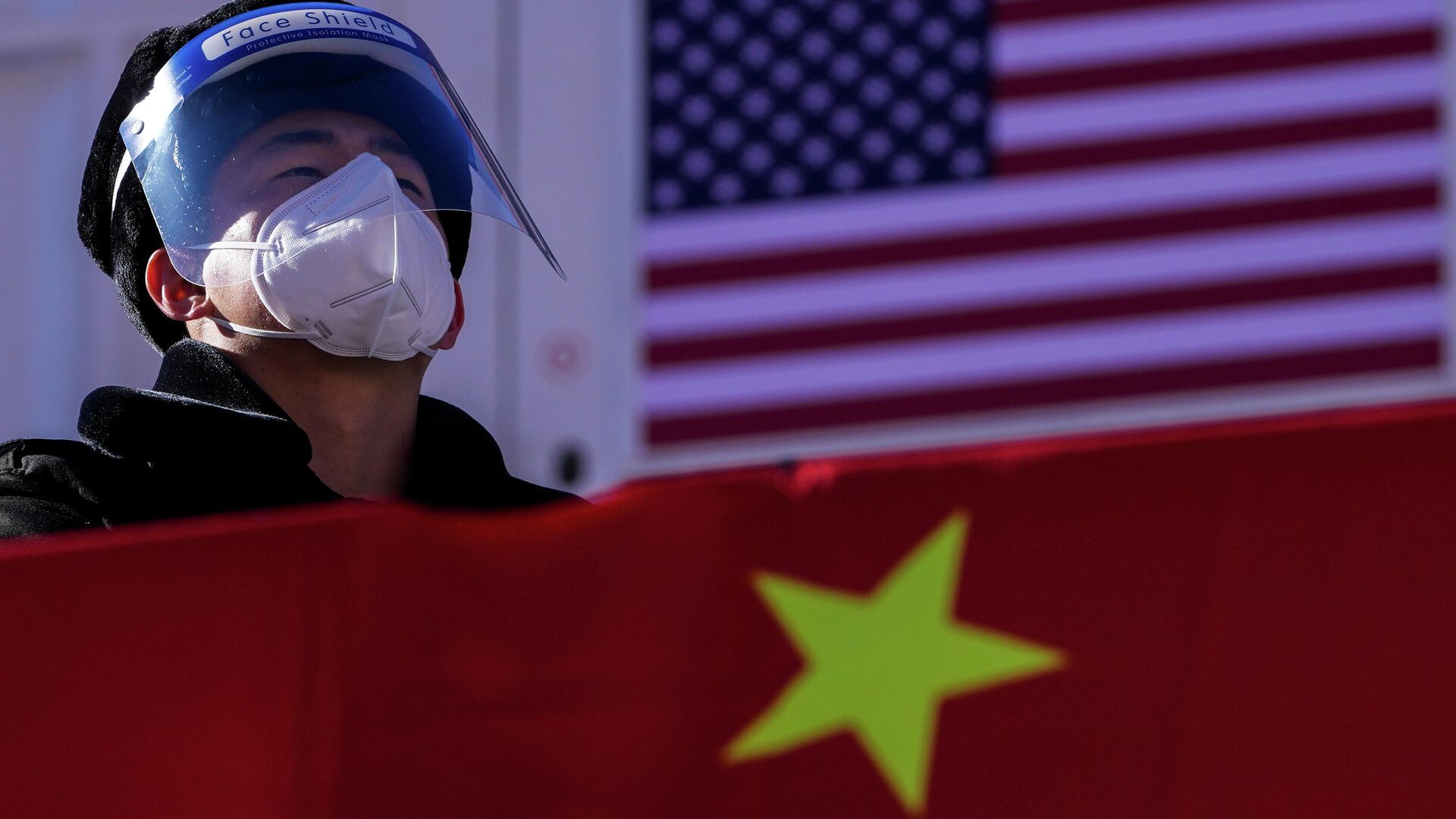https://sputnikglobe.com/20220727/us-prepares-to-defend-aukus-pact-from-chinas-criticism-at-key-non-proliferation-conference-1097841197.html
US Prepares to Defend AUKUS Pact From China's Criticism at Key Non-Proliferation Conference
US Prepares to Defend AUKUS Pact From China's Criticism at Key Non-Proliferation Conference
Sputnik International
The NPT Review Conference is held once every five years. In 2020, the conference was postponed due to COVID pandemic-related restrictions. Washington has said... 27.07.2022, Sputnik International
2022-07-27T09:19+0000
2022-07-27T09:19+0000
2022-07-27T09:19+0000
aukus
us
aukus
china
australia
npt
iaea
https://cdn1.img.sputnikglobe.com/img/07e6/07/1b/1097846997_0:80:3072:1808_1920x0_80_0_0_4f15fdb6f33bd41e0ddeeb8be68c169b.jpg
The United States says it knows that Beijing would “criticize” the trilateral AUKUS pact at the upcoming ‘NPT (Treaty on the Non-proliferation of Nuclear Weapons) Review Conference’, according to Adam M Scheinman, US Special Representative of the President for Nuclear Non-proliferation.The conference will take place in New York City next week.The AUKUS pact was unveiled by Australia, the US and the United Kingdom last September. Under the arrangement, the US and Britain will transfer advanced technology to Australia so that it can domestically develop nuclear-powered submarines (SSNs). Earlier this year, the AUKUS allies said that they would expand the pact’s focus to bolster cooperation in developing hypersonic weapons.Scheinman argued that the AUKUS pact is meant to be a “system for nuclear propulsion, not for transfers of nuclear weapons”.Scheinman also defended Australia’s “impeccable” non-proliferation credentials, saying that Canberra was working closely with its British and American partners as well as the International Atomic Energy Agency (IAEA) to ensure that the “highest safeguards standards” are applied to the AUKUS pact.Under the 1970-era NPT, only the five permanent members of the United Nations Security Council (UNSC)—Russia, the US, France, the United Kingdom and China — are allowed to possess nuclear weapons.Australia ratified the treaty in 1973.The remarks by the American official come days after the Chinese Foreign Ministry urged the three AUKUS allies to “revoke” the treaty, saying that it could set a “bad precedent” of nuclear weapon states transferring tons of weapons-grade uranium to a non-nuclear power like Australia.Since the formal unveiling of AUKUS last September, Beijing has been scathingly critical of the US-led arrangement and has on several occasions accused Washington of perpetrating a “nuclear arms race” in the Asia-Pacific region.
china
australia
Sputnik International
feedback@sputniknews.com
+74956456601
MIA „Rossiya Segodnya“
2022
News
en_EN
Sputnik International
feedback@sputniknews.com
+74956456601
MIA „Rossiya Segodnya“
Sputnik International
feedback@sputniknews.com
+74956456601
MIA „Rossiya Segodnya“
us, aukus, china, australia, npt, iaea
us, aukus, china, australia, npt, iaea
US Prepares to Defend AUKUS Pact From China's Criticism at Key Non-Proliferation Conference
The NPT Review Conference is held once every five years. In 2020, the conference was postponed due to COVID pandemic-related restrictions. Washington has said that all the NPT states will aim to reach a “consensus” on upholding three “pillars” of global nuclear non-proliferation regime — disarmament, non-proliferation, and peaceful uses.
The United States says it knows that Beijing would “criticize” the
trilateral AUKUS pact at the upcoming ‘NPT (Treaty on the Non-proliferation of Nuclear Weapons) Review Conference’, according to Adam M Scheinman, US Special Representative of the President for Nuclear Non-proliferation.
"I think – and I know – that China at the NPT Review Conference will criticize the partnership, although I also think that what China fails to do is to recognize that it’s China’s own actions in the region that have led the partners to close gaps in our security," Scheinman said during an online briefing late Tuesday evening.
The conference will take place in New York City next week.
The AUKUS pact was unveiled by Australia, the US and the United Kingdom last September. Under the arrangement, the US and Britain will transfer advanced technology to Australia so that it can domestically develop nuclear-powered submarines (SSNs).
Earlier this year, the AUKUS allies said that they would expand the pact’s focus to bolster cooperation in developing hypersonic weapons.
Scheinman argued that the AUKUS pact is meant to be a “system for nuclear propulsion, not for transfers of nuclear weapons”.
“And the NPT itself very clearly prohibits assistance to countries in acquiring or manufacturing nuclear weapons. There is no violation of the NPT and we’ll be very clear about that at the NPT Review Conference," the American envoy remarked.
Scheinman also defended Australia’s “impeccable” non-proliferation credentials, saying that Canberra was working closely with its British and American partners as well as the International Atomic Energy Agency (IAEA) to ensure that the “highest safeguards standards” are applied to the AUKUS pact.
Under the 1970-era NPT, only the five permanent members of the United Nations Security Council (UNSC)—Russia, the US, France, the United Kingdom and China — are allowed to possess nuclear weapons.
Australia ratified the treaty in 1973.
The remarks by the American official come days after the Chinese Foreign Ministry urged the three AUKUS allies to “revoke” the treaty, saying that it could set a “bad precedent” of nuclear weapon states transferring tons of weapons-grade uranium to a non-nuclear power like Australia.
Since the formal unveiling of AUKUS last September, Beijing has been scathingly critical of the US-led arrangement and has on several occasions accused Washington of perpetrating a “nuclear arms race” in the Asia-Pacific region.


